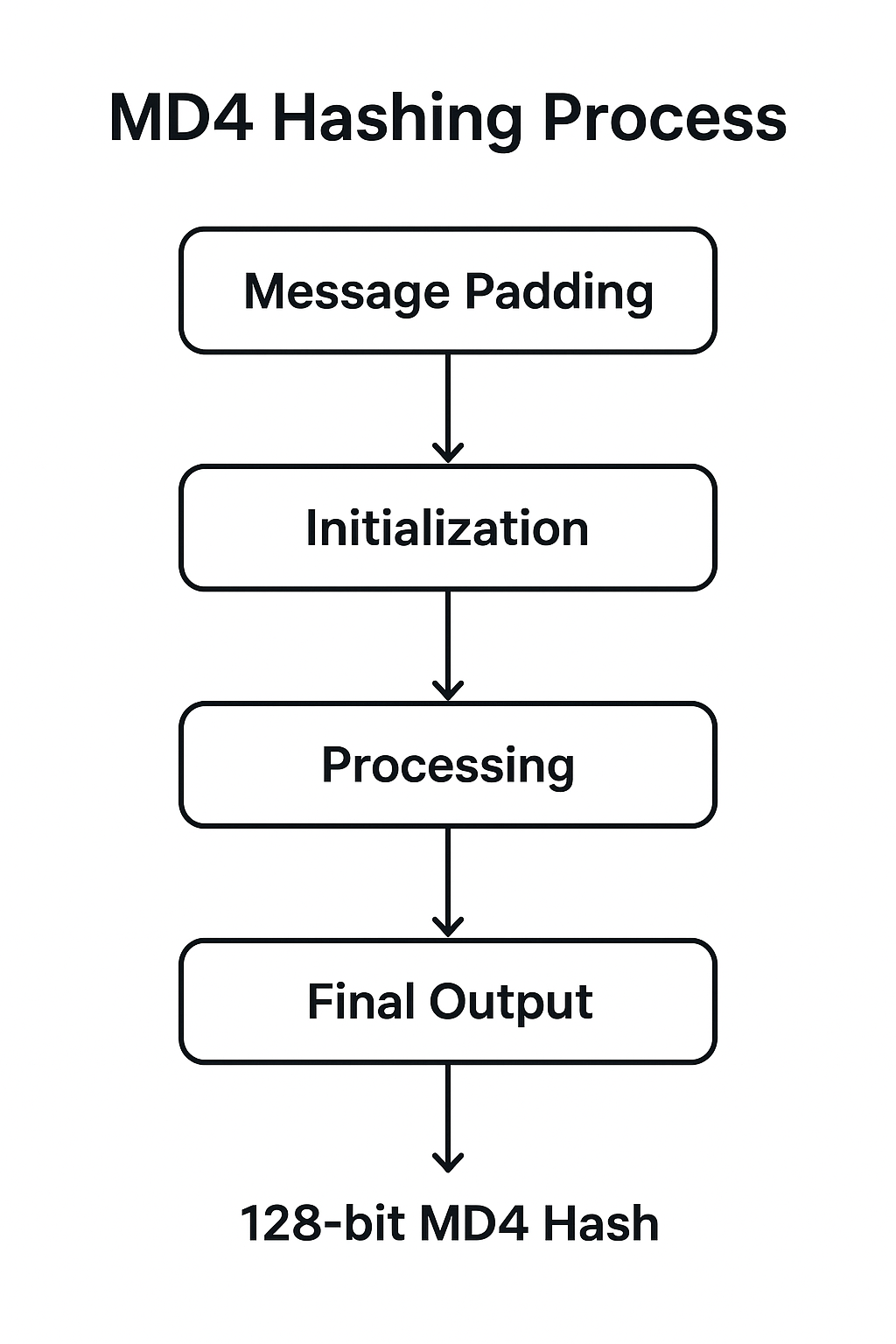
MD4 generator
Created on 4 October, 2025 • Generator tools • 73 views • 2 minutes read
An MD4 generator is an online tool that converts text, files, or passwords into a unique 128-bit MD4 hash value. Although MD4 is considered outdated and insecure, it is still used for legacy systems, checksum verification, and educational purposes. Learn h
MD4 Generator: A Complete GuideWhat is an MD4 Generator?
An MD4 generator is a tool that produces MD4 hashes from input data such as text, passwords, or files. MD4 (Message Digest Algorithm 4) is a cryptographic hash function designed by Ronald Rivest in 1990. It generates a 128-bit hash value that serves as a unique representation of the input. Although MD4 is considered outdated and not secure by today’s standards, it still has historical significance in cryptography and is sometimes used for compatibility purposes.
When you enter data into an MD4 generator, it instantly provides a fixed-length hash output. No matter how long or short your original input is, the MD4 hash will always remain 32 characters in hexadecimal format.
Importance of MD4 in Cryptography
Even though MD4 is rarely used in modern cryptographic applications, it played a major role in the development of later hashing algorithms like MD5 and SHA-1. At the time of its invention, MD4 was known for being extremely fast, which made it suitable for limited computing environments. However, advancements in computational power revealed vulnerabilities, and MD4 was eventually deemed insecure for encryption or password protection.
Despite its weaknesses, MD4 hashing is still used in some systems where backward compatibility is essential. For example, certain Windows NT LAN Manager (NTLM) authentication protocols rely on MD4 hashes.
How Does an MD4 Generator Work?
An MD4 hash generator works by applying a series of mathematical functions to transform input data into a unique hash. The process involves:
Message Padding – The input is padded to ensure it fits into 512-bit blocks.
Initialization – MD4 uses four 32-bit registers initialized with specific constants.
Processing – Each block undergoes three rounds of operations involving bitwise shifts, logical functions, and modular additions.
Final Output – After processing all blocks, a 128-bit hash value is produced and represented in hexadecimal format.
The result is irreversible—meaning you cannot convert the MD4 hash back to the original data. This one-way property made it useful for data integrity and authentication.
Applications of MD4 Generator
Although not widely used today, an MD4 generator may still serve purposes such as:
Legacy System Support – Maintaining compatibility with older applications and authentication systems.
Checksum Verification – Ensuring files have not been altered during transfer (in specific outdated software).
Educational Use – Helping students and researchers understand the evolution of hash functions.
Limitations of MD4 Hashing
While MD4 generators provide quick hashing, they come with significant weaknesses:
Collision Vulnerability – Two different inputs can produce the same hash.
Weak Security – Easily broken using modern hardware.
Not Suitable for Cryptography – MD4 should never be used for password storage or secure encryption.
Conclusion
The MD4 generator remains a valuable educational and compatibility tool, even though the algorithm itself is no longer recommended for secure cryptographic use. Developers and researchers often turn to MD4 hashing for legacy applications, historical analysis, and academic purposes.
For modern encryption and password protection, stronger algorithms like SHA-256, SHA-3, or bcrypt should always be preferred. However, the MD4 generator still holds an important place in the history of cryptography as one of the foundations upon which more secure hashing methods were built.
Popular posts
-
Barcode readerMisc Tools • 160 views
-
Color pickerMisc Tools • 122 views
-
Exif readerMisc Tools • 117 views
-
SHA-256 generatorGenerator tools • 93 views
-
Ip LookupChecker Tools • 90 views